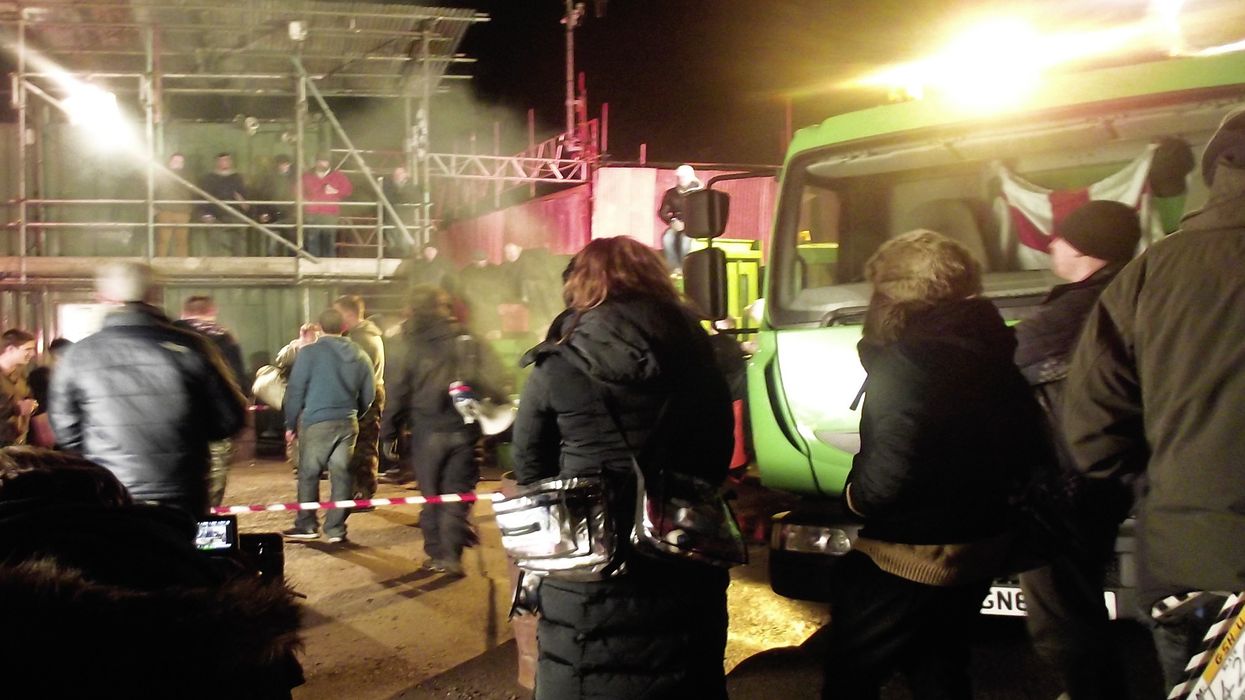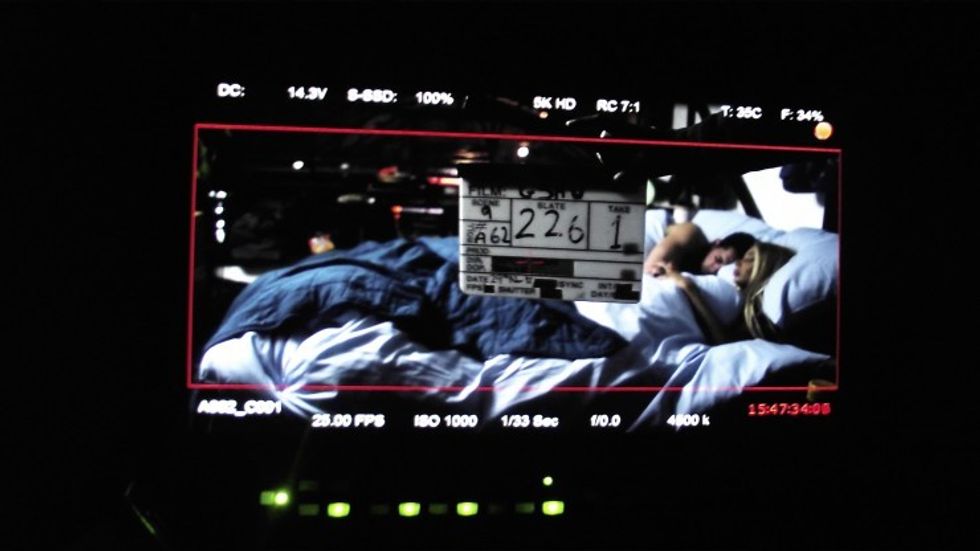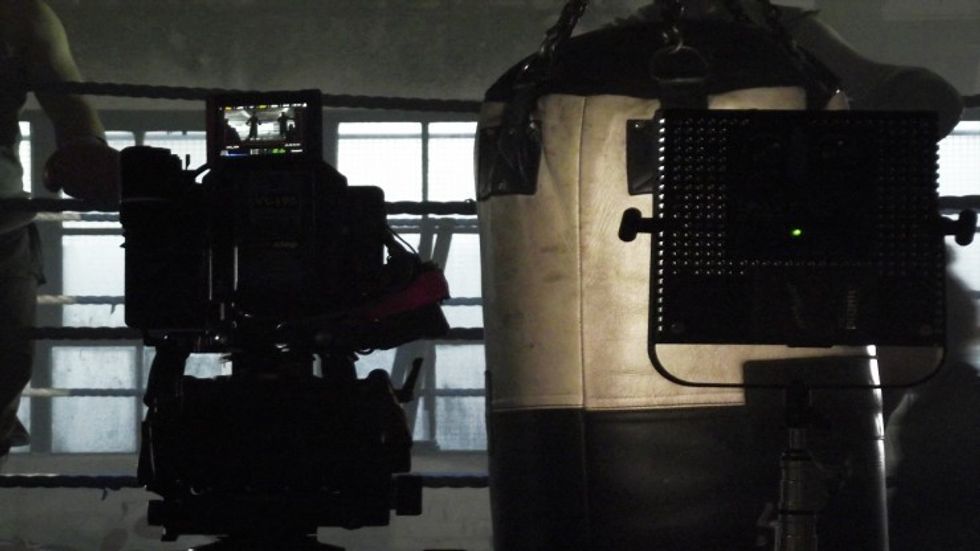How To Get Hired On Big Budget Feature Films
How can you get jobs on larger scale productions?

The reality is that the crew hiring process for big-budget feature films is very different than it is on indies.
When first dreaming of working on film sets, it’s likely you imagined working on large scale productions. Either a feature film meant for global distribution or a TV series that would be aired on a major streaming platform. But how do you get hired for these?
Well, unlike independent productions, these larger-scale projects do not advertise for crew so freely online. Finding work on these sets is mainly a matter of who you know and if you are trusted to do your job at a professional level.
My name is Amy Clarke, I started working in the film industry as a production runner on independents before I became a script supervisor. I write weekly about film careers on my blog – amyclarkefilms.com
This article will breakdown the hiring process, how to make contacts, and get professional work. You will also find quotes from various film crew on how they personally broke into the film industry.
Let's begin!
The Hiring Process
Firstly, let's look at the hiring processes conducted by major companies and by independent films.
Independent films are less likely to have a large production team. It may even be the director doing the hiring.
A low budget may mean the project will struggle to find a truly experienced crew. Independent films often advertise work online, through job sites and social media.
So, finding work on independent film sets is not so difficult. If you are willing to work for low pay, the production may be extremely happy to have you even if you are still learning.
On the other end of the spectrum, major production companies won't be hiring the film crew themselves. The producer, or one of the producers, on the project does the hiring. A producer will hire all the above-the-line crew and the line producer will hire everyone below-the-line.
If you want a breakdown of what roles fall above or below the line check out how we breakdown almost all film crew positions.
Producers and line producers hire crew in several ways.
To begin with, they will hire who they know and trust. Likely they will have key crew members they have worked with before who they want to work with again. Key crew members will also have a crew who they want to work with. The director, for example, might have a DOP in mind who they have worked with previously. The DOP will hire their own camera crew, in the same way, the costume designer will hire their own assistants.
After hiring via referrals, producers will seek out the additional crew from film commissions, crewing agencies, and studio recommendations. Only during the end of hiring, or if hiring on short notice will producers look online for a film crew.
In other words, if you want to be hired on a professional film set you need to know many producers and heads of departments who can invite you onto set.
Which brings us to...
Making Contacts
Often you will hear the saying that getting hired is a matter of who you know. It's true.
But this is easier said than done, and there is no fast track to making contacts in the film industry.
One of the best ways I have found to meet numerous filmmakers at once is to work on an independent feature film. They might pay poorly and even go over schedule, but you can meet 20, 30, or even 50 filmmakers all at once. Introduce yourself to everyone and keep in touch with them on social media.
You will also need to have a specific focused job role. On a student film, you might wear many crew hats, but as the production budget rises there is only one role per person. When a producer has a specific job role that needs to be filled, you need them to imagine you in that one role.
Mainly making contacts is a matter of over saturation, you need to meet as many producers, directors and HOD’s as possible. For the first few years of your career, this may mean doing some free work. Think of free work as practice, use these low-budget productions to test out your job role and make mistakes. You can also try offline networking and self-promotion, for visual job roles you may need to create an impressive filmmaker portfolio.
In time you will meet enough people to get you onto big-budget productions. If you are struggling, it may be that you have not focused on your specific job role enough, or given it enough time. You may also need to go down a job role rank in order to be hired within your current skillset. For example, you might work on independents as a production designer but need to advertise as an art director, or set dresser to get hired on big-budgets. From there, you work your way back up.
Finding Work
As mentioned, you are likely to be hired through a referral. There are however a few other ways you can try to get hired on big-budget productions.
Many regions/states have film commissions (also called film councils). These are governmental organizations created to attract producers to shoot locally. These commissions can also have databases that producers can use to hire a local crew. One notable example is Georgia USA, which has a production crew dictionary and advertises jobs.
Occasionally film job sites and social media also advertise big-budget work. Find film job sites that regularly advertise paid positions in your job role and check back on them weekly. Facebook groups are increasingly being used by producers hiring on short notice. A local group that I have joined in the UK recently advertised a runner job on a Netflix series and art department positions for a period drama feature.
It took me several years of working on low-budget film sets before I was being offered enough work to go full-time as a script supervisor. My first major job role came from a producer who found my details on the UK’s film commission Creative England. I met with the director for an interview and got the job of 2nd unit script supervisor on my first big-budget feature film. Soon after, I was hired on a reoccurring TV soap opera for a few weeks to cover maternity leave (I got this job after working with the producer on an independent short a few months earlier). Six months later I was hired as 1st unit script supervisor on a major budget feature film. I got this job after the executive producer of a low budget feature recommended me to the producer.
So there you have it, this is how people find work on big-budget film sets. It is a slow grind but I found that once the ball starts to roll, finding more professional work gets a lot easier. But I'm only one example, and to prove how it works I have asked various film crew (from the U.S. and UK) to give me quotes on how they personally found professional work.
Film Crew Quotes
"...each of those jobs widened my base of contacts, leading to more work in years to come, every job building on the last. That’s how the film industry works and how I built a career that spanned four decades."
The more jobs you do, the more crew you meet and people will recommend and bring you onto other jobs. Some of these jobs will be paid, some won’t. But it's important to do the same high standard of work regardless of the pay scale or budget. Its tough to get your foot in the door in this industry, I did free jobs for many years before I started getting paid. After many years of doing work for free and not sleeping a lot, you eventually get to a stage where you are earning enough through film work to do it full time. (1st Assistant Camera)
The way I got into the industry is a long and complicated story. Unless you're rich or have a parent in the industry, then that is basically the only way it will happen. It wasn't instant, I worked temp jobs between film jobs, I've had to move back to my parents a few times because otherwise, I'd be homeless but finally, 8 years after I graduated, I can support myself and have a half-decent life living in London with just my film work income. (Key Grip)
The road to getting into the film industry was daunting; how do you break into it and get that first job? You have to be prepared to put yourself out there and in some cases, work for free in order to gain experience and contacts. I did all of this and through, persistence, eagerness and a giant stroke of luck I got my first big break. (Production Assistant)
It all started with taking a job as an unpaid PA. That movie introduced me to a production secretary who several months later helped me get my next PA job on a much bigger movie (for $125/week a nice raise), a grip who eventually hired me to work as his Best Boy on another feature (my first non-PA job) and a gaffer who hired me on many jobs over the next few years, including television commercials and a one hour TV special. Each of those jobs widened my base of contacts, leading to more work in years to come, every job building on the last. That’s how the film industry works and how I built a career that spanned four decades. (Gaffer)
Final Thoughts
The first few years of finding initial experience and making contacts are the hardest. As such, at the start of their careers, many filmmakers have part-time jobs or live with their parents to save money. Trust us: it does get easier.
With one paid job often more will follow. I know many filmmakers in a range of job roles who now work in the industry full-time.
If the job is a good fit, and you enjoy the work, then in time you will be able to work on professional productions. I hope this article has helped you understand more about how filmmakers find consistent paid work in the film industry.
How did you get your first big-budget film job?



 No Film School's coverage of
No Film School's coverage of 









